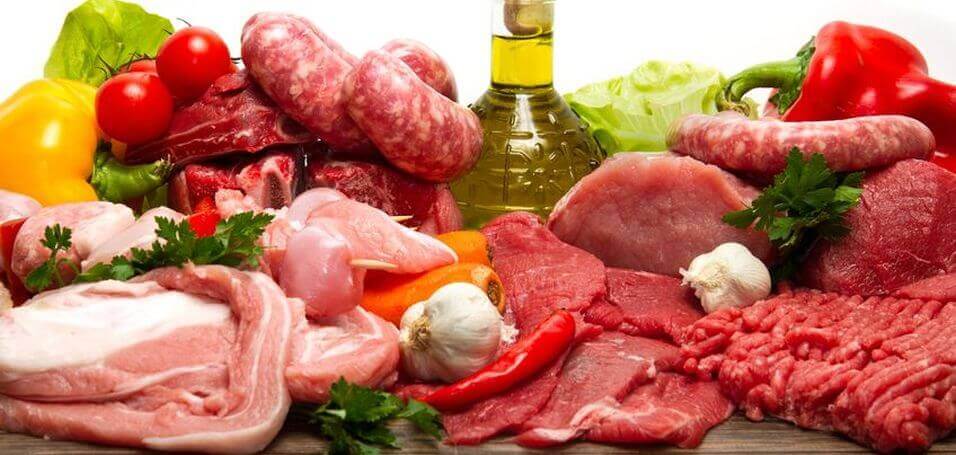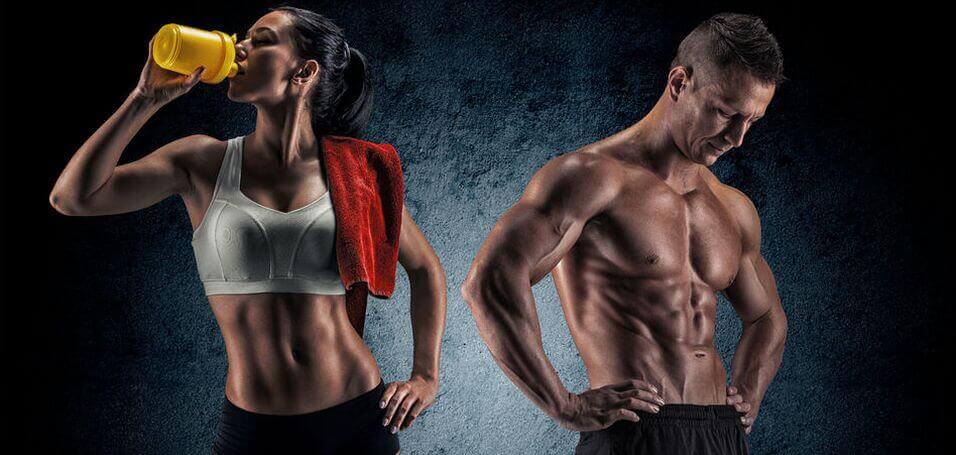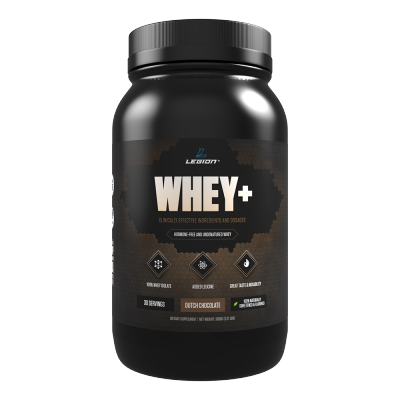Some people say you absolutely need to eat protein before your workouts to maximize muscle and strength gains.
Others say eating before you train doesn’t matter, but eating after is vital.
Others still say neither of these “feeding windows” matter, and that you just need to make sure you’re eating enough protein on the whole.
Science isn’t exactly clear on this matter, either, because each of these people have studies that purportedly bolster their arguments.
And so you’re left wondering who’s right and what to do.
Should you “play it safe” and just eat protein before and after every workout? Or should you just ignore everyone and just eat on a schedule that you like most?
Well, in this article, we’re going to get to the bottom of all of it, and it starts with this:
As far as eating protein goes, eating enough every day is what matters most for gaining muscle and strength as quickly as possible.
Everything else related to protein intake–when you eat it, how many servings you eat per day, how large each serving is, etc.–is subordinate to total protein intake.
That doesn’t mean these other factors don’t matter at all, though.
If you scoff at them, you’re overlooking an important part of natural muscle building:
While 80% of your progress comes from the fundamentals, you can speed things up by making a number of minor improvements to your diet, training, and supplementation.
Individually, the effects of each refinement may be slight, but collectively, they become significant over time.
Well, protein timing is one of those slight refinements, and it includes pre- and post-workout nutrition.
As you’ll soon see, eating protein before and after workouts isn’t as important as many people claim, but it’s not entirely without merit, either.
Let’s get started.
- What Is Protein and Why Does It Matter?
- Should You Eat Protein Before Your Workouts?
- Should You Eat Protein After Your Workouts?
- What’s Kinds of Protein Are Best for Pre- and Post-Workout Nutrition?
- The Bottom Line on Eating Protein Before and After Workouts
Table of Contents
+Want to listen to more stuff like this? Check out my podcast!
What Is Protein and Why Does It Matter?

Protein is a compound comprised of chains of smaller molecules known as amino acids, and it’s the basic building block of your body.
Your tissues such as muscles, ligaments, tendons, hair, organs, and skin as are all made from proteins, and so are hormones, enzymes, and various chemicals essential to life.
Your body requires twenty-one amino acids to form proteins.
It can produce twelve but must get the remaining nine from the food you eat. These are known as the “essential” amino acids and they are:
- Phenylalanine
- Valine
- Threonine
- Tryptophan
- Methionine
- Leucine
- Isoleucine
- Lysine
- Histidine
The primary reason you eat protein is to provide your body with the essential amino acids it needs to repair and build tissues in your body.
As you can imagine, regular weightlifting and exercise increases the body’s demand for protein, but adequate protein intake is important among the sedentary as well.
If sedentary folk don’t eat enough protein as they age, they’ll lose muscle faster. And the faster they lose muscle, the more likely they are to meet an untimely demise.
Now, physiologically speaking, eating protein does more than just raise plasma (blood) amino acid levels.
It also stimulates protein synthesis, which is the biological process whereby amino acids are used to create new proteins.
Muscle proteins are one of the many types of proteins that the body creates, and these are the proteins that are used to repair and enlarge muscle tissues.
The opposite of protein synthesis is protein breakdown, which is the biological process whereby the body breaks down existing proteins into their constituent amino acids.
Both of these activities are occurring in the body at all times to one degree or another.
When viewed in these terms, muscle gain and muscle loss are the result of periods where protein synthesis rates exceed protein breakdown rates, and vice versa, respectively.
In other words, when muscle protein synthesis rates outpace muscle protein breakdown rates, you gain muscle mass. When this happens, the body is in a state of “positive protein balance.”
And when muscle protein breakdown rates surpass muscle protein synthesis rates, you lose muscle. When this happens, the body is in a state of “negative protein balance.”
Now, under normal circumstances, these two states balance each other out, and your muscle mass remains stable. This is why people that don’t work out don’t gain or lose any muscle to speak of over time (they’re actually slowly losing muscle, but it’s too slow to notice day-to-day).
So, at bottom, everything we do to gain muscle faster–train hard in the gym, eat plenty of protein and calories, take the right supplements, etc.–accomplishes one of two things (or both, in some cases):
- It increases muscle protein synthesis rates.
- It decreases muscle protein breakdown rates.
Strength training, for example, spikes muscle protein synthesis rates, which is why it promotes muscle gain.
Fasting for long periods of time, on the other hand, spikes muscle protein breakdown rates, which is why it can promote muscle loss.
Now, as far as maximizing muscle growth goes, the fundamentals of proper diet, training, and recovery get you most of the way there.
You know, things like.
- Eating enough protein every day.
- Eating enough calories every day.
- Focusing on heavy, compound weightlifting.
- Emphasizing progressive overload.
- Making sure you get enough sleep.
- Making sure you don’t train at 100% intensity/effort for months on end.
At least 80% of your muscle gain is going to come from these things alone, meaning that all the other strategies and advice that you could follow will always be less important.
Less important doesn’t mean worthless, though, and especially not as a natural weightlifter that wants to optimize his or her progress.
That’s why I recommend we do more than stick to the basics, including supplementing with creatine and beta-alanine, giving consideration to protein timing, keeping cardio to a minimum, to name a few.
Individually, these things don’t move the needle much, but collectively, they can make quite a difference over the long term.
And that’s where eating protein before and after workouts comes into the picture…
Should You Eat Protein Before Your Workouts?

Some people say that eating protein before working out doesn’t help or hurt you, and they’ll often point to studies like this and this to support their position.
Others say they’re wrong, and cite papers like this and this, which seem to demonstrate that eating protein before training would indeed boost muscle growth over time.
What gives?
The solution to this mystery is simple, actually, and is found in a minor detail: when subjects had last eaten before eating their pre-workout meals.
You see, it takes your body several hours to digest and absorb protein, and meal size and composition affect this greatly.
A small amount of a quickly digested protein, like 20 grams of whey protein, is usually digested and fully absorbed in about 2 hours. A steak with buttered potatoes and vegetables, on the other hand, might take up to 6 to 8 hours to fully process.
So, let’s say you’ve eaten a large meal containing a significant amount of protein a couple hours before your workout.
Your plasma (blood) amino acid levels are still going to be elevated from the meal, which would make eating more protein before you train unnecessary.
Let’s now say that it has been several hours since you last ate protein, and it was a small meal, like a cup of Greek yogurt.
In this case, your body is going to have more or less digested and absorbed all the protein from the yogurt by the time you’re ready to work out, in which case you could benefit from eating another serving of protein before hitting the weights.
What this means, then, is most people don’t need to eat protein before they work out.
Most of us have eaten a mixed meal containing a fair amount of protein 1 to 3 hours before we work out.
For example, you might have a protein shake with some fruit and nuts at 3 PM, and be in the gym by 6. Or you might eat a big breakfast at 8 AM, and work out at 12. Or a big lunch at 1, and work out at 5.
In all these cases, you probably wouldn’t benefit from another dose of pre-workout protein.
If, however, you train first thing in the morning, or 5 to 6 hours after eating a relatively small meal, then it’s probably a good idea to eat ~20 grams of protein before you work out.
It’s that simple.
Should You Eat Protein After Your Workouts?

Post-workout nutrition is more cut-and-dried than pre-workout.
The consensus among most respected, evidence-based fitness professionals is that yes, you should eat protein after you work out.
It’s not hugely important, but research does show that it can help you gain more muscle over time.
This makes sense for two reasons:
- After you train your muscles, they’re more responsive than usual to the muscle-building stimuli provided by protein.
- Protein breakdown rates begin to rise rapidly after you finishing training, and eating protein negates this.
In most cases, 20 to 40 grams of protein eaten after your workouts will do the trick, and studies show that whey protein is particularly good for post-workout nutrition.
What’s Kinds of Protein Are Best for Pre- and Post-Workout Nutrition?
Alright, so now you know when you’re supposed to eat protein before you work out and why, and that it’s probably always a good idea to have protein afterward.
What types of protein are best, though? Does it really matter?
Well, ideally, you’d have something that quickly raises plasma amino acid levels, and thus protein synthesis rates, and that’s rich in the amino acid leucine, which is what most directly stimulates muscle growth.
The protein source that best fits that bill is also the most popular protein supplement in the world: whey protein.
Whey is rapidly digested and abundant in leucine, which is why it greatly increases protein synthesis rates, and why it’s generally preferred for pre- and post-workout nutrition.
While any kind of whey protein supplement can get the job done, I’m partial to a 100% whey protein isolate because it’s as close to pure protein as you can get, and it has no lactose to potentially upset your stomach.
Here’s the product I personally use:

It’s called WHEY+, and it’s one of our most popular supplements for several reasons:
- It comes from small dairy farms in Ireland, which are known for their exceptionally high-quality milk.
- It comes from hormone- and antibiotic-free cows.
- It contains no artificial food dyes or other junk additives or fillers.
- It contains no soy, gluten, GMOs, MSG, or hormones.
- It’s 100% naturally sweetened and flavored.
- It’s not amino spiked.
The bottom line is if you want a clean, all-natural, and great tasting whey protein supplement that’s low in calories, carbs, and fat, then you want to try WHEY+ today.
(And if you’d like to know which supplements besides protein you should take to reach your fitness goals, take the Legion Supplement Finder Quiz.)
The Bottom Line on Eating Protein Before and After Workouts
Protein timing matters.
It’s no “biohack” or “secret” to muscle growth, and neglecting it won’t halt your progress, but you’ll probably gain muscle faster if you pay attention to it.
And that means, when appropriate, eating protein before you work out, and, most always, eating protein after.
(There’s a bit more to protein timing, as well. Check out this article to learn more.)
What’s your take on eating protein before and after your workouts? Have anything else to share? Let me know in the comments below!
Scientific References +
- Dangin M, Boirie Y, Garcia-Rodenas C, et al. The digestion rate of protein is an independent regulating factor of postprandial protein retention. Am J Physiol - Endocrinol Metab. 2001;280(2 43-2). doi:10.1152/ajpendo.2001.280.2.e340
- Fujita S, Dreyer HC, Drummond MJ, et al. Nutrient signalling in the regulation of human muscle protein synthesis. J Physiol. 2007;582(2):813-823. doi:10.1113/jphysiol.2007.134593
- Norton LE, Wilson GJ, Layman DK, Moulton CJ, Garlick PJ. Leucine content of dietary proteins is a determinant of postprandial skeletal muscle protein synthesis in adult rats. Nutr Metab. 2012;9. doi:10.1186/1743-7075-9-67
- Dangin M, Boirie Y, Garcia-Rodenas C, et al. The digestion rate of protein is an independent regulating factor of postprandial protein retention. Am J Physiol - Endocrinol Metab. 2001;280(2 43-2). doi:10.1152/ajpendo.2001.280.2.e340
- Moore DR, Robinson MJ, Fry JL, et al. Ingested protein dose response of muscle and albumin protein synthesis after resistance exercise in young men. Am J Clin Nutr. 2009;89(1):161-168. doi:10.3945/ajcn.2008.26401
- Pitkänen HT, Nykänen T, Knuutinen J, et al. Free amino acid pool and muscle protein balance after resistance exercise. Med Sci Sports Exerc. 2003;35(5):784-792. doi:10.1249/01.MSS.0000064934.51751.F9
- Biolo G, Tipton KD, Klein S, Wolfe RR. An abundant supply of amino acids enhances the metabolic effect of exercise on muscle protein. Am J Physiol - Endocrinol Metab. 1997;273(1 36-1). doi:10.1152/ajpendo.1997.273.1.e122
- Tipton KD, Ferrando AA, Phillips SM, Doyle D, Wolfe RR. Postexercise net protein synthesis in human muscle from orally administered amino acids. Am J Physiol - Endocrinol Metab. 1999;276(4 39-4). doi:10.1152/ajpendo.1999.276.4.e628
- Aragon AA, Schoenfeld BJ. Nutrient timing revisited: Is there a post-exercise anabolic window? J Int Soc Sports Nutr. 2013;10. doi:10.1186/1550-2783-10-5
- Tipton KD, Elliott TA, Cree MG, Aarsland AA, Sanford AP, Wolfe RR. Stimulation of net muscle protein synthesis by whey protein ingestion before and after exercise. Am J Physiol - Endocrinol Metab. 2007;292(1). doi:10.1152/ajpendo.00166.2006
- Phillips SM. The science of muscle hypertrophy: Making dietary protein count. In: Proceedings of the Nutrition Society. Vol 70. ; 2011:100-103. doi:10.1017/S002966511000399X
- Surina DM, Langhans W, Pauli R, Wenk C. Meal composition affects postprandial fatty acid oxidation. Am J Physiol - Regul Integr Comp Physiol. 1993;264(6 33-6). doi:10.1152/ajpregu.1993.265.3.714-r
- Tipton KD, Rasmussen BB, Miller SL, et al. Timing of amino acid-carbohydrate ingestion alters anabolic response of muscle to resistance exercise. Am J Physiol - Endocrinol Metab. 2001;281(2 44-2). doi:10.1152/ajpendo.2001.281.2.e197
- Burke LM, Hawley JA, Ross ML, et al. Preexercise aminoacidemia and muscle protein synthesis after resistance exercise. Med Sci Sports Exerc. 2012;44(10):1968-1977. doi:10.1249/MSS.0b013e31825d28fa
- Verdijk LB, Jonkers RAM, Gleeson BG, et al. Protein supplementation before and after exercise does not further augment skeletal muscle hypertrophy after resistance training in elderly men. Am J Clin Nutr. 2009;89(2):608-616. doi:10.3945/ajcn.2008.26626
- Hoffman JR, Ratamess NA, Tranchina CP, Rashti SL, Kang J, Faigenbaum AD. Effect of protein-supplement timing on strength, power, and body-composition Changes in resistance-trained men. Int J Sport Nutr Exerc Metab. 2009;19(2):172-185. doi:10.1123/ijsnem.19.2.172
- Sherwood LM, Parris EE, Cahill GF. Starvation in Man. N Engl J Med. 1970;282(12):668-675. doi:10.1056/NEJM197003192821209
- MacDougall JD, Gibala MJ, Tarnopolsky MA, MacDonald JR, Interisano SA, Yarasheski KE. The time course for elevated muscle protein synthesis following heavy resistance exercise. Can J Appl Physiol. 1995;20(4):480-486. doi:10.1139/h95-038
- Chargé SBP, Rudnicki MA. Cellular and Molecular Regulation of Muscle Regeneration. Physiol Rev. 2004;84(1):209-238. doi:10.1152/physrev.00019.2003
- Metter EJ, Talbot LA, Schrager M, Conwit R. Skeletal muscle strength as a predictor of all-cause mortality in healthy men. Journals Gerontol - Ser A Biol Sci Med Sci. 2002;57(10):B359-B365. doi:10.1093/gerona/57.10.B359
- Paddon-Jones D, Short KR, Campbell WW, Volpi E, Wolfe RR. Role of dietary protein in the sarcopenia of aging. In: American Journal of Clinical Nutrition. Vol 87. ; 2008. doi:10.1093/ajcn/87.5.1562s
- Phillips SM, van Loon LJC. Dietary protein for athletes: From requirements to optimum adaptation. J Sports Sci. 2011;29(SUPPL. 1). doi:10.1080/02640414.2011.619204
- Helms ER, Aragon AA, Fitschen PJ. Evidence-based recommendations for natural bodybuilding contest preparation: Nutrition and supplementation. J Int Soc Sports Nutr. 2014;11(1). doi:10.1186/1550-2783-11-20










